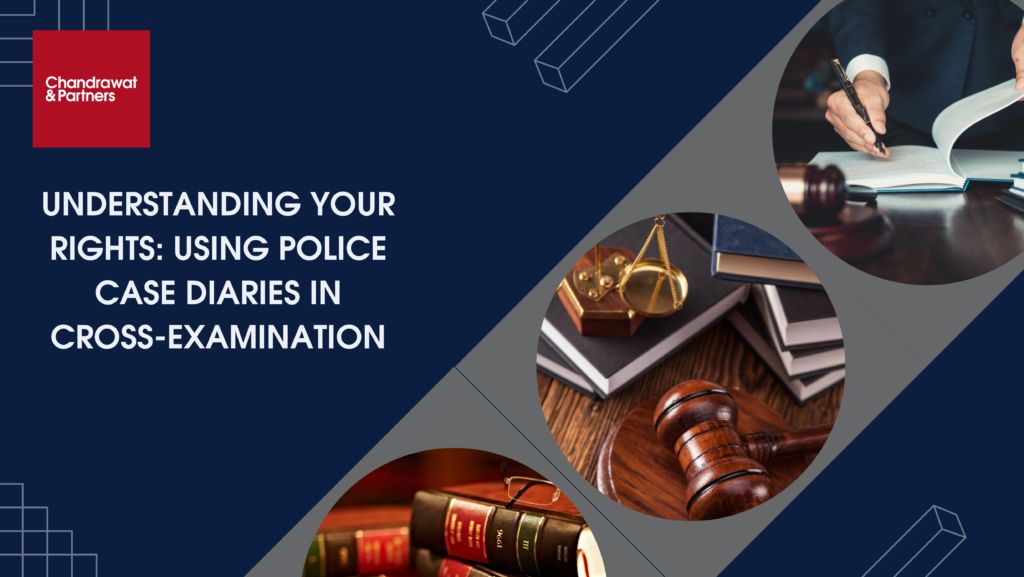Share :
Introduction
In a landmark judgment of Shailesh Kumar v. State of UP, the Supreme Court of India has clarified and strengthened the rights of an accused person during cross-examination. The ruling states that whenever a police officer refers to a case diary to refresh their memory during testimony, the accused has the right to rely on the same case diary for cross-examination purposes. This decision has significant implications for criminal trials in India.
WHAT IS A CASE DIARY?
A police case diary is a crucial document maintained by the investigating officer throughout an investigation. It contains a chronological record of all actions taken, statements of witnesses recorded, evidence collected, and other relevant details about the case.
THE SUPREME COURT RULING
The Supreme Court’s ruling is based on a careful interpretation of Section 172 of the Code of Criminal Procedure (“CrPC”) 1973 and Sections 145 and 161 of the Indian Evidence Act 1872. Let’s break down the key points:
- Section 172 of the CrPC:This section mandates that police officers investigating a case must maintain a case diary. Sub-section (2) empowers the court to call for and examine the case diary during a trial or inquiry. However, the accused cannot automatically access this diary.
- Sections 145 and 161 of the Indian Evidence Act:These sections deal with cross-examination and the use of previous statements to contradict a witness.
The Supreme Court has now held that if a police officer uses the case diary to refresh their memory while testifying, the defence automatically acquires the right to use the same diary to cross-examine the officer. The court also observed that if the court decides to use the case diary to contradict the officer’s testimony, the defence counsel gains the right to use that information in cross-examination.
IMPLICATIONS OF THE RULING
This ruling has far-reaching consequences for the accused in India:
- Levelling the Playing Field:It provides a vital tool to defence lawyers, helping them expose inconsistencies or contradictions in police testimony, thereby ensuring a fairer trial.
- Enhanced Transparency:This ruling makes the investigation process more transparent, reducing the risk of arbitrary decision-making or potential manipulation of evidence.
- Strengthened Rights of the Accused:The decision reinforces the fundamental rights of the accused, including the right to a fair trial and the presumption of innocence.
CONCLUSION
The Supreme Court’s decision is a positive step toward strengthening the criminal justice system in India. By empowering the accused to effectively challenge police testimony using the case diary, the ruling ensures a greater balance between the rights of the accused and the powers of law enforcement.
For more information or queries, please email us at
enquiries@chandrawatpartners.com




